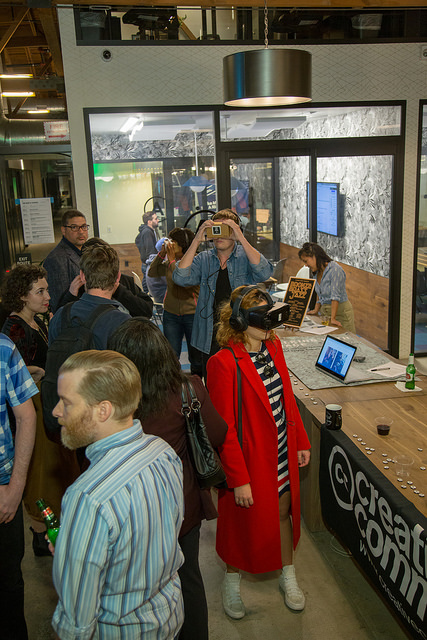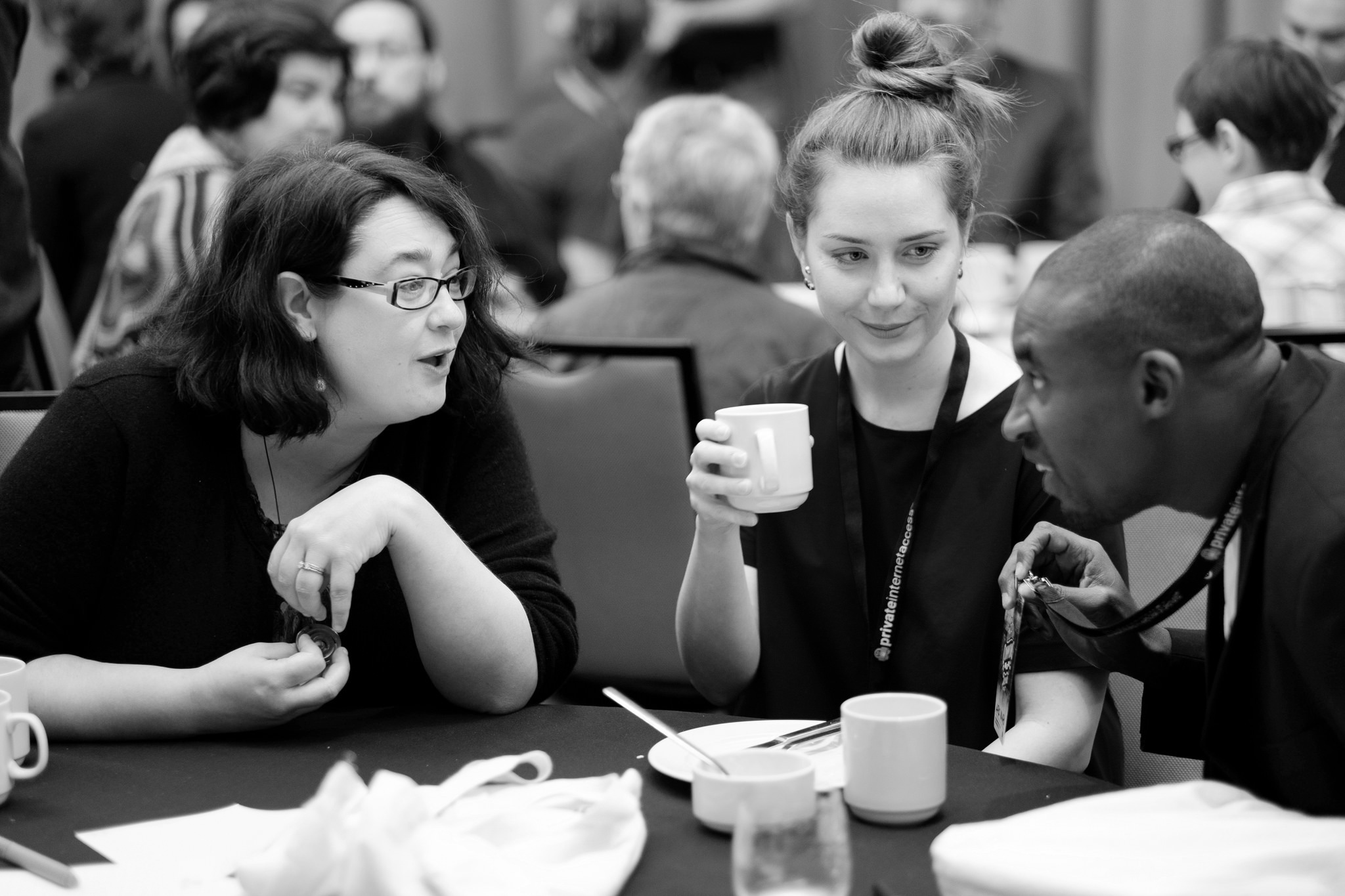Los Angeles: CC and a panel of VR experts tackle the issue of social change in emerging media
jeudi 1 mars 2018 à 21:59Watch or listen to the recording on Vimeo, YouTube, or Soundcloud.
On February 15, Creative Commons hosted an evening of demos, discussion, and drinks in Los Angeles called, “CC as a Vehicle for Social Change in Emerging & Immersive Media.” With 200 guests registered, the evening featured demos of three virtual reality social impact projects. They were:
- “Bronze, Brass, Jazz” (Maya Santos & Joel Quizon, Form Follows Function) “a 360 VR animation that evokes the spirit of late night jam sessions at breakfast clubs, and fabled stories about jazz great Charlie Parker, from his memorable stay at the Civic Hotel (1st and San Pedro) to a brief residency at the Finale Club (230 1/2 East First Street).”
- “Walking With Grace” (Maya Santos & Joel Quizon, Form Follows Function) “a 360 virtual reality documentary, Walking with Grace highlight places and streets of Little Tokyo through the perspective of Grace Chikui, a blind woman and long-time resident.”
- “NOTES ON BLINDNESS” (Alethea Avramis, Atlas V.) “Arte Experience presents Notes On Blindness, a VR journey into a world beyond sight. In 1983, after decades of steady deterioration, John Hull became totally blind. To help him make sense of the upheaval in his life, he began documenting his experiences on audio cassette. These original diary recordings form the basis of this project, an interactive non fiction using new forms of storytelling to explore his cognitive and emotional experience of blindness.”
Following the demos, participants gathered for a panel discussion with VR creators and producers moderated by Steve Anderson, Professor of Digital Media at UCLA, whose research sits at the intersection of VR, social impact, and open systems. Speakers were Maya Santos (Creative Director, FORM follows FUNCTION Media), Joel Quizon (Producer, FORM follows FUNCTION Media), Alethea Avramis (Creative Producer, Atlas V.), and Brian Seth Hurst (President and Chief Storyteller, StoryTech Immersive). Speakers addressed questions such as:
- When you think about emerging media and tech (like VR, AR, etc., and culture/tech more generally) what is the thing you could do with it that is most useful or impactful? What is the thing that you could do that is the most delightful?
- Unlike most forms of entertainment, the whole point of VR is collaborative — to co-create the experience through your engagement. In this (seemingly) infinitely expandable universe of creativity, how do you see the Creative Commons concepts of inviting collaboration, reuse, and remix applying?
- Who ultimately owns the experience? How do you bring people into the process to more actively/fully engage with the media (beyond being an agent in the experience)? Does experience require making/doing?
- In this industry where there is no standard (yet), what is the opportunity for Creative Commons as a system of rights? What about as a system of values?
- Where do you predict VR/AR trending next?
Those in the audience included representatives from various companies at the intersection of VR and social impact, including Daydream Impact, a new program from Google offering nonprofits free VR guidance and tools to create social impact stories. For the full discussion, including a Q&A with the audience, follow the links to the recordings above!

More photos of the event are available at Creative Commons’ Flickr page. Thank you to everyone who came out!
The post Los Angeles: CC and a panel of VR experts tackle the issue of social change in emerging media appeared first on Creative Commons.



